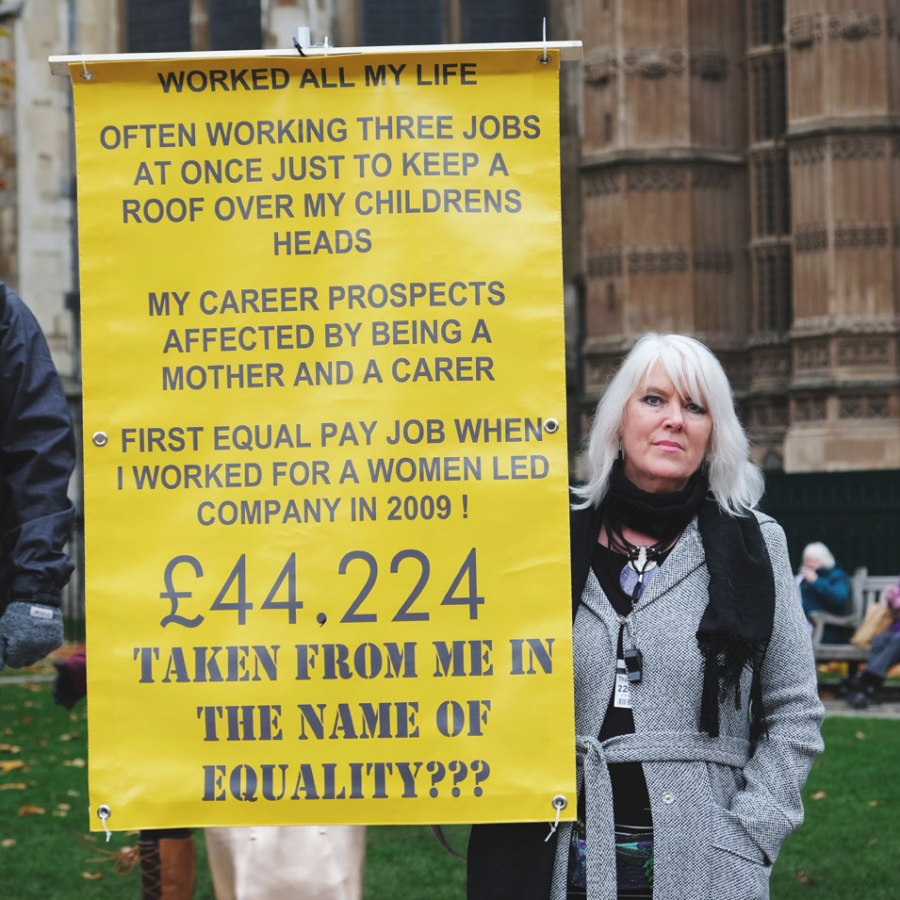Millions of women in the UK who have seen their state pensions rise from 60 to 65 were dealt a devastating blow this week when the Court of Appeal ruled not to issue them state pension compensation on the grounds that they were not discriminated against.
This increased age of state pension on eligibility for women has left Dee Wild Kearney, 60, from Kent, furious — but determined to get justice. “I’ve not only lost six years of my pension — but this will drain our life savings, too.” Dee told us her story before the results were announced.
“I had been married for eight years and had two children, when at 27 my marriage broke down and I became a single parent. It was terrifying suddenly being alone with my children, Sarah, then seven, and Alex, then two, to look after and a large mortgage to pay. Within a week, I managed to find a full-time job and in the years that followed, I worked hard to keep a children, Sarah, then seven, and Alex, then two, to look after and a large mortgage to pay.
“A grafter, I worked my way up from oil telesales to being a petrol station contract rep. They were decent jobs, but not one came with a private pension, although to be honest, I felt safe in the knowledge that paying my national insurance meant that I would be eligible for a state pension at 60 — the norm for women of my age. In order to find better paid work, in 1990 I retrained in production management and design for theatre.

“I then worked my way up to consultant and creative industries officer. But by 2004, I was forced to put my career on hold to care for my mum, who was severely ill with dementia. By 2009, Mum went into a home and I rented out the flat attached to our home in Manchester to meet all of my bills. A man called Duncan rented the flat and in time we developed feelings for each other, marrying in 2012. Duncan ran a drainage business, but had arthritis, which meant doctors had advised him to stop physicalwork, or he would be crippled within ten years.
“With my retirement approaching, we bought a motorhome and planned to scale down work, travel and enjoy some hard-earned quality time. We had been married about a year when in 2013 my first granddaughter was born. She was profoundly disabled. Shortly after, I had notice of redundancy from my job as a business advisor. Keen to support Sarah and my son-in-law, I sold my five-bedroom house in Manchester for just £175,000 and we moved to Kent.
“We had studied our finances and knew that I could make the money from my house sale last until I collected my state pension at 60. We rented a house in Kent and I tried to get a job, but struggled because of my age. Duncan was still working and confident that we had the finances in place to support us through to my pension. But then one day in 2017, when I was 59, I made the most shocking discovery by chance on Facebook.
“I read that back in 1995, the Pensions Act had been passed, changing the age that women were eligible for state pension — meaning that for me it changed from 60 to 66. I thought it couldn’t be true. But the more I read about the WASPI Campaign Pension Injustice), I knew I was a victim and sought out a local group for advice.
I felt angry that I had never been notified that I would be missing out on six years of state pension — close to £50k. I also felt scared about what
it meant for those years I’d counted on having my state pension as an income.

“Thankfully, I had the money from my house to live on, but that meant we couldn’t afford to buy a new home in Kent. After more than 35 years of being a homeowner, we were forced to rent a small house and live on our savings until we established an income. Instead of helping with my granddaughter and looking forward to retirement, I had to go back to work helping Duncan, and took on a carer job in the evening. Physically it’s taken its toll. I struggle with arthritis and blood pressure. I’m forced to rely on my husband, who now has to work extra. I’ve not only lost six years of my pension — but this will drain our life savings, too.
“The government insists that women born in the UK in the 1950s who have been affected by this were notified by letter, that there were adverts in newspapers and on television and there were leaflets that could be requested at job centres. I — like many of the women — certainly never received a letter. The only letters that were allegedly sent to my age group were in 2012/13 — 17 years after the policy was brought in, and far too late to give us adequate warning.
“I see the new pension age changes for women as daylight robbery but I’m determined not to give up without a fight. Together with these incredible women, I’ve campaigned outside parliament, I’ve also spoken on local radio, started a blog and become known as ‘The Persistent Pensioner’.b

“The saying goes that there’s always a blessing in bad times, and these fellow women are certainly my blessing. We are proud to fight for what we deserve.
We were expecting to go quietly into old age— but now we have become warriors.”
We have all the inspiration you need to make the most of your time at home. Try some online exercise classes we think you’ll love, or find out why beauty brands all around the world are issuing free hand sanitiser to those who need.








